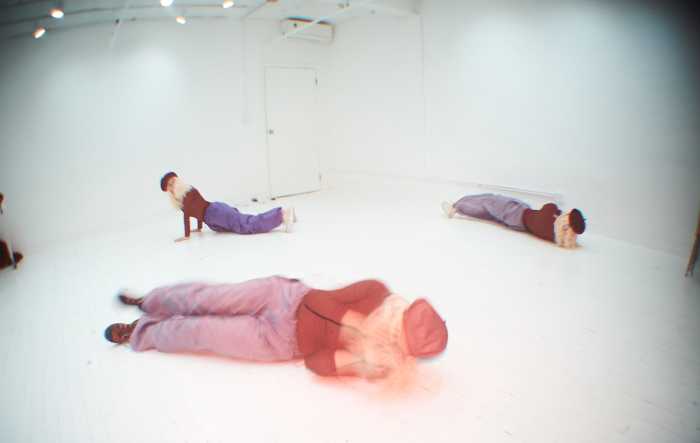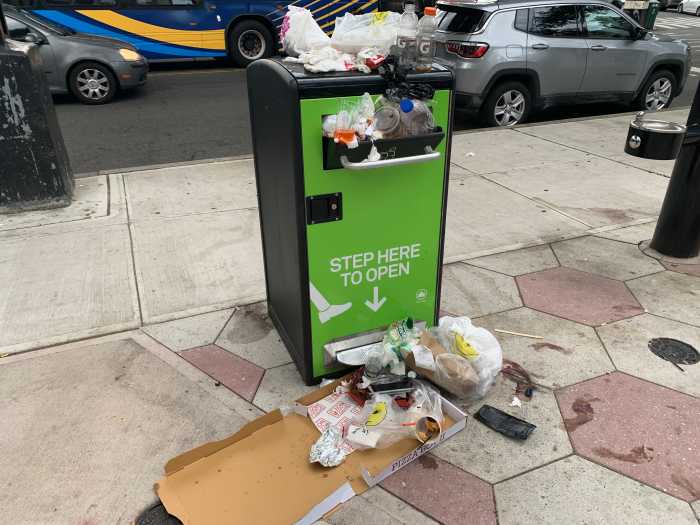By Charles Hack
Rep. Jerrold Nadler told the growing Brooklyn base of Russian-speaking voters that he would make it easier for immigrant seniors to become citizens, improve funding for low-income housing and allow Israel to make its own security decisions over Gaza. Nadler was talking at Shorefront YM-YWHA of Brighton Beach, 3300 Coney Island Avenue, on June 6. The voter education meeting was sponsored by the Civic and Voter Education Initiative (CVEI), the Hebrew Immigrant Aid Society (HIAS), Local Russian Émigré Organizations (LOREO) and the American Forum of World Congress of Russian Jewry (WCRJ). “The congressmen and politicians are not coming because they love us or are happy with our smiles,” said Gene Borsch, Director of the LOREO Program, an organization that aims to encourage the Russian-speaking community to participate in politics. “We have the power.” Borsch said that there are 40,000 registered Russian voters in New York and some 400,000 potential voters who are naturalized or U.S. citizens. “So we have plenty of work,” he said. Nadler said he would broadly support a bill proposed by President Bush that would make it possible for undocumented immigrants to regularize their status if they had been working for a long time and paying taxes. In addition, Nadler proposed a bill to allow people over 65 who have been in the country for five years to take the citizenship test in English and to waive the test for anyone over 70 years old. “If you are three years old, it’s very easy to learn a language; when you’re 15 it’s not as easy, and when you are 55 it’s a little more difficult,” said Nadler. But he warned that the bill might take a long time to get approval. “That bill, which I introduced last year and introduced again this year, will be very difficult to pass,” said Nadler, because Republicans dominate Congress. Ari Kagan, executive director of the United Association of East Coast Jewry, questioned Nadler’s position on Social Security for non-citizens. Nadler said that he opposed a 1996 Republican bill that prevented non-citizens from claiming SSI and food stamps. He and other Democrats succeeded in later amending the law to reinstate food stamps for non-citizens, and SSI for seven years while non-citizens apply for citizenship. “No one thought it would take more than seven years to become a citizen,” said Nadler. The processing of citizenship has slowed down, especially in New York, because the USCIS officer is understaffed, he said. Nadler blasted the President’s proposals to privatize Social Security, saying that he agreed with other Democrats that the administration had overplayed the crisis. “Unless the United States is going to have a crash like in the 1930s, there is not a problem for Social Security for at least 70 or 80 years. It is fine and we don’t have to worry about it,” Nadler said. Nadler said he supported an amendment to add $500,000 in additional funds to Section 8, and is opposing Bush’s proposal to increase the amount of rent that benefit recipients pay under Section 8. When one man provided a list of 20 veterans who needed subsidized housing, Nadler said he was not in a position to intervene. Section 8 is allocated by a waiting list, he said. But he was lobbying for better funding. On stem cell research, Nadler said that scientists promise cures to diseases and problems such Parkinson’s, Alzheimer’s and paralysis. “There are certain animals that if you cut off their leg they will grow a new leg,” Nadler said. “We can’t do that, but the scientists tell us that if we do the proper research that it is a possibility in the future.” Stem cells are created by destroying a five-day-old embryo, he said. “At five days an embryo consists of just a clump of cells, no nerves, no brains, no forms of any kind,” Nadler said. While he respects religions that teach that an embryo is a person from the moment of conception, he said that other religions acknowledge the medical benefits of embryonic research. “I strongly agree with most Democrats that we should do embryonic research,” said Nadler, who citied two reasons. He said it is important to reassure people that everything that can be done is being done to find cures to hitherto incurable diseases and ailments. Secondly, he argued for separation of church and state. “I don’t think it is right for any person — or any person who may agree with that religion who holds political office — to try to use the government or the power of government to enforce their views on other citizens of this country, who may be of another religions or no religion,” Nalder said. “The freedom of religion means that you are free to believe in any religion you choose or not, but it also should mean that none of us try to use religion to try to enforce our religion on every body else.” On Israeli disengagement from Gaza, Nadler said: “It is fine for the United States to suggest to Israel to adopt an appropriate policy, said Nadler. “What should never happen is for the United States to use its political, military or economic power to pressure the Israeli government to make a decision.” Israelis have to live with the consequences if the decision is wrong, while Americans do not, he said.


































